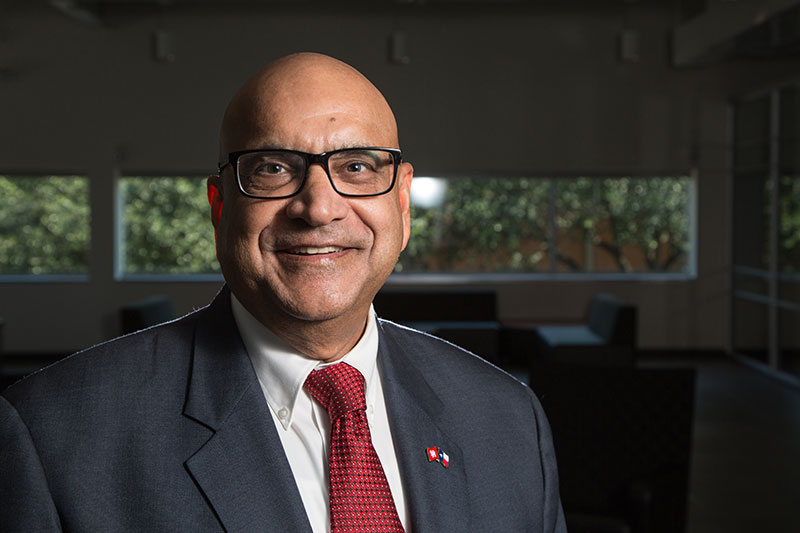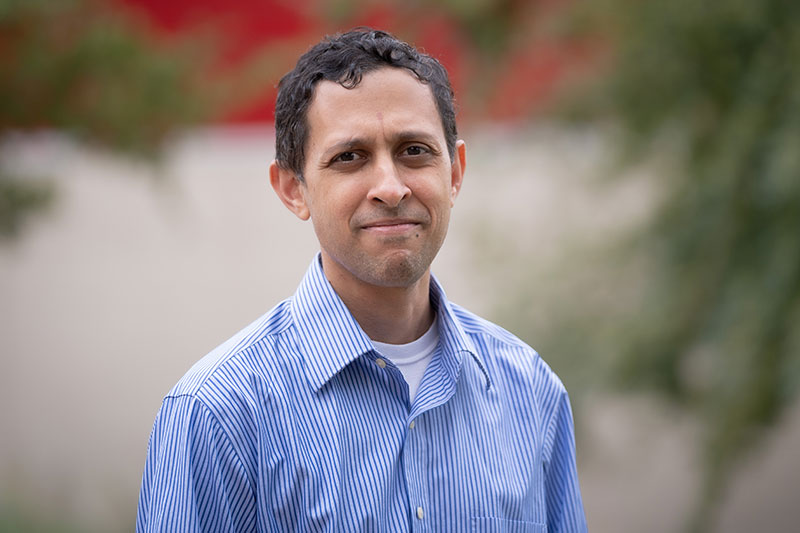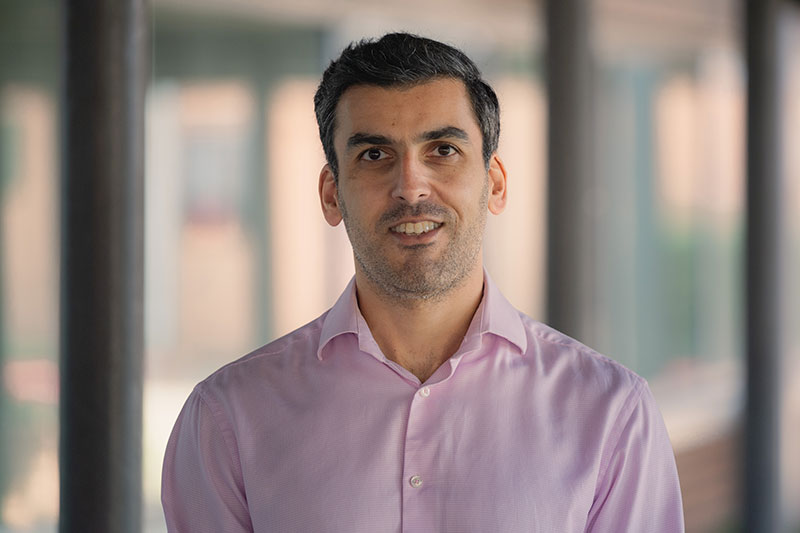Three faculty members of the University of Houston Cullen College of Engineering have been named Fellows and Senior Members of the National Academy of Inventors (NAI). The three faculty, Ganesh Thakur, Navin Varadarajan and Hadi Ghasemi, were all inducted during the NAI’s Annual Meeting in June. Read on for more information about these outstanding faculty and their respective accomplishments.
 Ganesh Thakur |
Ganesh Thakur — NAI Fellow
Ganesh Thakur, Distinguished Professor of Petroleum Engineering and director of Energy Industry Partnership, was officially inducted as a Fellow of the academy during the NAI’s annual meeting in June. Election to NAI Fellow is the highest professional distinction accorded solely to academic inventors.
Thakur is a pioneer in carbon capture, utilization and storage (CCUS), a vital emissions reduction technology. His patent on forecasting performance of water injection and enhanced oil recovery (EOR) using a hybrid analytical-empirical methodology provided a much faster approach and served as an alternative to more time-consuming reservoir simulation. His team is continuing to push the research envelope for CCUS employing world-class lab research, simulation, machine learning and artificial intelligence.
Thakur, a member of the National Academy of Engineering, was recruited to UH in 2016 after almost four decades of industry experience with Chevron. The same year, he was awarded a $3 million grant from the Texas Governor’s University Research Initiative. This was matched dollar for dollar by UH, making a total research budget of $6 million.
Thakur also serves as the director for Energy Industrial Partnerships at the University of Houston. This center represents efforts in upstream and midstream as it applies to important applications and will have an immense impact on the state of Texas in the field of energy. As a principal investigator, Thakur has secured external industrial research funding of $5 million in less than five years.
Under his leadership at UH, researchers have performed extensive research on reservoir management and Carbon Capture and Sequestration (CCS) pilot project for Oil India Ltd. Thakur demonstrated using carbon dioxide captured from nearby petrochemical plants to boost oil recovery in several fields in the Indian state of Assam, to reduce the country's carbon footprint and increase the country’s ability to fulfill its energy needs.
"This ambitious partnership has offered clear benefits for both Oil India and for the University of Houston," said UH President Renu Khator.
 Navin Varadarajan |
Navin Varadarajan — NAI Senior Member
The research developments from the Single-Cell Lab of Navin Varadarajan, M.D. Anderson Professor in the William A. Brookshire Department of Chemical and Biomolecular Engineering, have been recognized again with his election to Senior Member status of the National Academy of Inventors.
Varadarajan was notified of the honor in early February. He said he was thankful to receive it, but he was quick to acknowledge the work of his students and collaborators when it came to the award.
“The honor is a reflection of the hard work, creativity, and dedication of the students and postdocs that work with me,” he said. “I am fortunate to have worked with amazing mentors, colleagues, and collaborators throughout my career.”
Varadarajan joined the Cullen College of Engineering in 2010, after postdoctoral fellowships at the Massachusetts Institute of Technology and the University of Texas in Austin, which is where he earned his doctorate in Chemistry. Varadarajan completed his M.S. in Organic Chemistry at the India Institute of Science, and his B.S. in Chemistry from the University of Madras.
When asked to describe his research, Varadarajan said, “Our research is focused on harnessing the power of the immune system for treating cancers and for designing therapeutics and vaccines.”
In September 2021, iScience published a collaborative work between the research teams of Varadarajan and UH pharmaceutics professor Xinli Liu about the development of an intranasal vaccine that provides durable local immunity against inhaled pathogens. Varadarajan's most recent paper in Biotechnology Bioengineering examines the usage of salicylic acid as a biotechnological tool for nuclear localization.
In October 2017, he earned a Career Development Award from the Department of Defense Peer Reviewed Cancer Research Program and in 2013 the Melanoma Research Alliance Stewart-Rahr Young Investigator Award. He has also won Cullen College of Engineering Teaching Excellence Awards in 2017–18 and 2012–13.
 Hadi Ghasemi |
Hadi Ghasemi — NAI Senior Member
For many academics, there can be a disconnect between the fundamental research being done and the commercial applications of that research. But for Hadi Ghasemi, Ph.D., Cullen Associate Professor of Mechanical Engineering, he sees this as a vital component when it comes to research benefiting society. Ghasemi is the co-founder and CTO of Elemental Coatings, which applies his research and his team's research to anti-icing products. In addition to private investments, the company received a $750,000 grant from the Air Force Research Laboratory and Boeing recently as well.
Ghasemi joined the Cullen College of Engineering for the Fall 2014 semester, following a postdoctoral associate position at the Massachusetts Institute of Technology. He earned his doctorate in Mechanical Engineering from the University of Toronto in 2011.
When asked how he best generates ideas, Ghasemi said they usually come to him when he's not focused on his day-to-day work.
“Most of the time, they come to my mind when I don't have that much external stimulus,” he said, explaining his process. “Most of the time during the day, you are busy with lots of emails, talking to people… Those are the times that none of these ideas come to my mind. Most of these ideas come to my mind when I'm working out, or when I'm going running. That's a time that I don't need to pay attention to much. And I can think about some of the things that I have in my mind. I have a better self reflection, or internal connection. When you are so busy, and on hectic days, I think it's really hard to come up with new ideas. When I set my schedule for a week, I try to make sure that I have sometimes for internal self reflection to bring these ideas out.”
Ghasemi stressed that performing fundamental research was still very important, but so was connecting it to commercialization when appropriate. This aligns with his mindset as he was growing up — He was always interested in building and finding out how things worked.
“That's always been my personality,” he said. “I really like to invent and develop something that I can see its impact on people's life.”